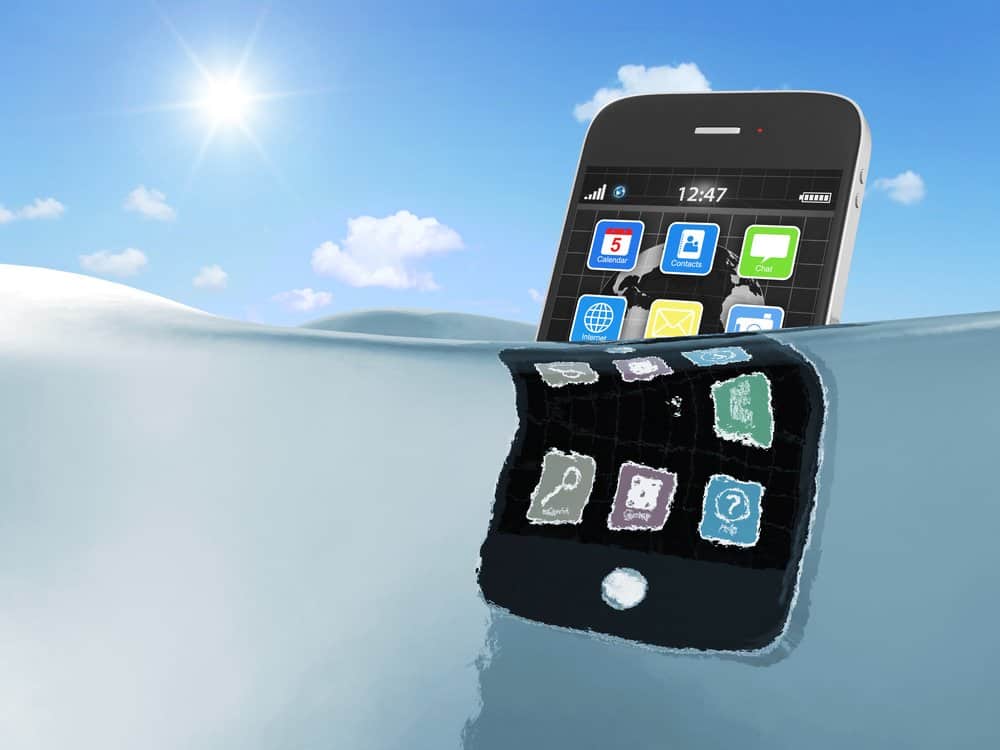Happy New Year?
The first week of a New Year seems destined to bring up a challenge for me. Last January I was involved in a car accident that resulted in a concussion, and 2017 started with me accidentally drowning my phone.
I must admit that given a choice for 2018, I would sign up for stupidly putting my phone in the washing machine over innocently getting rear-ended at a red light.
Even though I have nobody to blame but myself for the phone fiasco, I must admit that this year is off to a better start than last. And of course the drowning of my phone has given me a juicy blog subject to boot.
The Incident
Last Friday when I finally found my misplaced phone in the “last place I looked”, i.e. the pocket of my jeans, in the washing machine, well into its wash cycle, I was relieved that at least I had solved the mystery of “where the heck is it?”
The thrill of finding it was quickly extinguished of course, as I had already concluded that it was now merely a paperweight.
Now What?
Saturday morning I went to my phone service provider with it, holding a glimmer of hope that it might still be useful. No such luck.
I purchased a new phone, and then came the time to transfer what I had in my old phone. There is a great app you can use to transfer stuff (photos, contacts, apps, etc.) from an old phone to a new one. But it doesn’t work when the old one is dead.
Parallels
My work is all about helping families define and preserve their legacy, which includes very important steps that I explain to client families, which they cannot skip if they want to keep the odds of success on their side.
My old phone had lots of important stuff in it that I wanted to continue to benefit from. But it was now dead, and I had not done what was necessary to preserve what was in it by backing up everything.
Now, recreating what I had, became a much bigger challenge. In fact, some stuff, like photos, was gone for good.
Most of those photos weren’t critical, but they did have some value, which was now lost. Likewise, much of what the senior generation members have in their heads is not truly critical for the survival of the family, but it can often rise to a level above simply “nice to have”.
In case my analogy has been lost on you, allow me to spell it out more clearly. If you wait until after people have died to try to have a valuable relationship with them, it is MUCH harder to do.
Contacts
What about contacts? The way things turned out for me, thanks to technical ineptitude and the lack of foresight on my part, when my contacts updated on my phone, I got hundreds of names and email addresses from everyone I had ever emailed through my Outlook account, a majority of which are useless now.
The cell phone numbers that I actually wanted and needed were nowhere to be found.
I now have to delete a whole bunch of useless stuff, and I need to email a bunch of people and ask them for their cell phone numbers again.
So I got a lot of stuff I don’t want, and the stuff I want, I need to actually work to get, even though I already had it before.
This is kind of like having to go through all of the files and documents of a deceased relative, while never having had the benefit of the personal introductions to people who were important to the family.
Lesson Summary
- Whatever happens, it could be worse. Phone issues are preferable to concussions
- To have a back up, you actually have to DO a back up.
- Sometimes you don’t know what you’ve got ‘til it’s gone.
Please realize what you have and figure out how to preserve it. And I’m not just talking about your phone. There are so many things that the NextGen and the NowGen need to work at transfering.
Better get started today.




